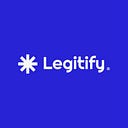As new technologies emerge every year, and more people are forced to work remotely due to the COVID-19 pandemic, governments are moving quickly to enable fully electronic processes to allow businesses to continue operating.
In line with these developments, on the LegalTech front, there has been an increased need for remote solutions which automate workflows, add security and create efficiency as well as convenience for the end-user.
One of the ways to achieve this is via remote online notarization. Remote online notarization (RON) is the highest third-party authentication- validation process.
The signer uses an electronic signature and appears remotely before a notary using online audio-visual technology.
While the basic components of a RON transaction are simple and common in most countries around the world, several additional requirements must generally be met for a RON transaction to be recognized and accepted. These requirements differ in each jurisdiction depending on the country’s own RON legislation.
Despite the differences among countries, the duties of a public notary tend to be:
1) Witnessing legally binding signatures on documents.
2) Affirming the state of mind of all the signees.
3) Identifying the possibility of fraud in a transaction.
4) Verifying the identification of the participants in a contract or in a transaction.
5) Administering oaths.
6) Handling affidavits, contracts, loan documents, waivers, trust certifications, marriage certificates, and various other legal documents.
Here, an important distinction must be made between electronic notarization and remote online notarization. While they may sound similar, there is a key difference.
The former allows documents to be signed and notarized digitally but requires the signer to be present in the same room as the notary.
The latter takes that one step further, by allowing documents to be signed and notarized digitally using audio-visual and identity proofing technologies, therefore bypassing the requirement of being in the same room.
To begin with, the State of Virginia, USA, became the first to develop RON technology and consequently enacted the legislation process in 2012. This was the country’s first bill to allow certified Virginia notaries to notarize documents online via audio-video technology.
Since the outbreak of the COVID-19 pandemic with its stay-at-home orders and new social distancing norms, even more states and countries in Europe have issued emergency directives that allow remote online notarization.
In consequence, many legislations have passed lately both in the US such as the Remote and Electronic Notarization Act of 2020 (the “SECURE Notarization Act”), and in the EU with the Directive (EU) №2019/1151 about the digitization of company law and the Regulation (EU) №910/2014 (eIDAS) concerning electronic signatures.
Remote online notarizations are rapidly becoming more prevalent, especially given the large necessity during the COVID-19 era. This ever-evolving field has raised concerns related to cybersecurity, encryption, and storage of sensitive electronic information, as well as whether certain identity authentication methods are sufficient.
At the end of the day, remote online notarizations remain relatively new in many states. Furthermore, temporary measures which are drafted quickly so as to respond to emergencies, sometimes leave gaps and raise certain questions.
Despite this, there is no doubt that remote online notarizations are becoming more and more advanced and have already been entrenched in our daily lives.
While not every transaction will be handled remotely after the pandemic, businesses with the capability to perform RON transactions will be better equipped to meet consumer’s demands for customized signing techniques.
Although RON needs further improvements, companies that start planning for RON now will come out ahead in the years to come.
This article was written by Anastasios-Orestis Patakas, a Legal Intern at Legitify.
